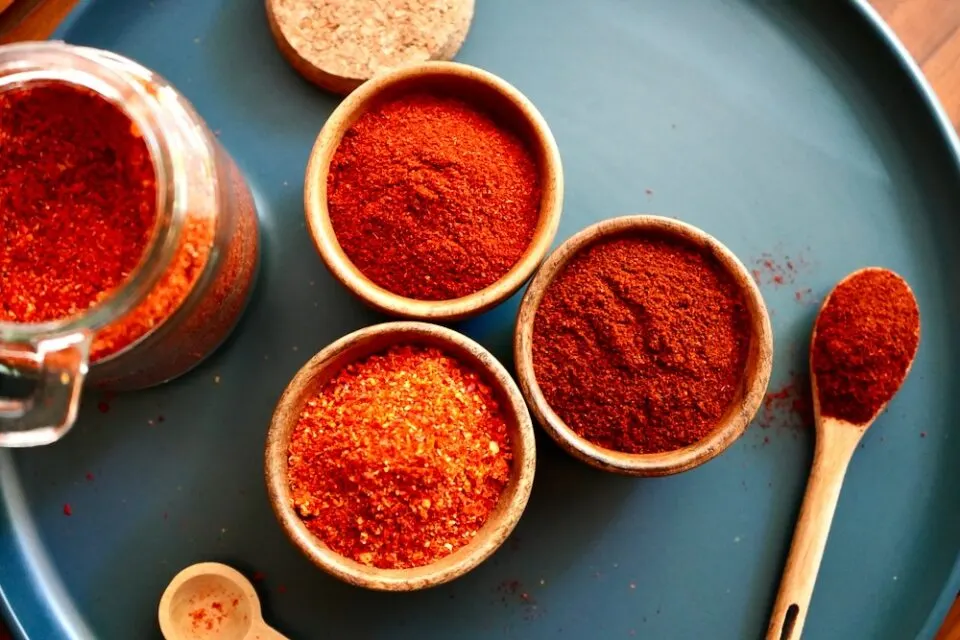
Have you recently had your wisdom teeth removed or are planning to get them extracted soon? If so, you may be wondering what types of foods you can eat during your recovery. While it’s important to stick to soft, nutritious foods that won’t disturb the surgical site, some people may be tempted to return to their original diet.
If you’re a fan of spicy foods, then having your wisdom teeth removed might feel like a double whammy: not only do you have to deal with the discomfort of the extraction procedure itself, but you’re also forced to take a break from your beloved fiery flavors. But is it safe to eat spicy food after wisdom teeth removal, and how soon after your surgery can you consume it?
In general, you can progress back to your diet and have spicy food 3 to 7 days after having your wisdom teeth removed. Once you’ve passed the initial recovery period and your dentist or oral surgeon has given you the green light to return to your normal diet, you can gradually reintroduce spicy foods.
Now you may wonder, why is there a need to abstain from spicy food after the surgery, and what should I look out for when returning to my original diet?
In the rest of this article, we will explore this common question and provide you with some helpful tips on what to eat and avoid during your recovery. So, whether you’re a spice lover or simply looking for some guidance on post-operative care, keep reading to learn more.
Reasons to Avoid Spicy Food After Wisdom Teeth Removal
There are several reasons why you should steer clear of spicy foods immediately after having your wisdom teeth removal surgery.
First of all, the first three days after the surgery is crucial for recovery as the extraction site is sensitive and the blood clot has yet to fully formed in the hole where the removed wisdom tooth was. Spicy foods contain compounds like capsaicin, which can irritate the sensitive tissues around the extraction site.
If not properly healed, the eating of spicy foods can lead to inflammation and irritation, which can prolong the healing process.

Secondly, spicy food are cooked with ingredients that have a higher acidity. Not only that, spices such as paprika, cayenne pepper, and chilli flakes will irritate the wound but also leave you with a burning sensation. In some cases, an infection may occur in the wound, making a trip to your dentist or oral surgeon necessary. As such, it is advised that you avoid spicy food until you are sure that your wound has fully healed.
Thirdly, The heat and spice from certain foods can cause temporary swelling and discomfort in your throat, making swallowing more difficult. After a wisdom teeth extraction, it’s important to ensure that you can swallow comfortably to avoid choking and ensure you are able to consume nutritious food.
On the other hand, having hard or crunchy food runs the risks of dislodging the newly formed blood clot, causing dry socket. Dry socket is a painful complication where the bones and nerves are exposed to the elements in the mouth. While this happens to only 2% to 5% of the people who had their teeth removed, it largely occur among those who did not stick to a soft diet during the first few days of their post-surgery care.
What to Look Out For After Wisdom Teeth Removal
For those who love spicy food, the thought of having to live for a few days without their favorite spicy dishes can make one feel frustrated.
After resting for a couple days, your wound should have healed sufficiently for you to progressively return to your original diet. However, before you do so, consider the following questions.
- Has the swelling gone down?
- Is the blood clot in the surgical site fully formed?
- Do you still feel pain in the surgical site?
- Do you feel pain when consuming a hot drink or soup?
If your reply to all the above questions are YES, then you should continue your soft food diet and abstain from any spicy food. During the recovery period, stick to a liquid or soft food diet. Examples include mash potatoes, scrambled eggs, broths, soft pasta, rice, applesauce, and ground meat.
When the pain and swelling has subsided, it may be time for you to start having spicy food again. Start by experimenting with small pieces of spicy food and see how the wound reacts to it. If you experience any form of pain or discomfort, then it is likely that your wounds have not healed sufficiently.
Adding on, while it is generally agreed that you can have spicy food a week after having your wisdom teeth removed, it is important to know that everyone heals at a different pace. Some may have healed within the first three days after the surgery while others may take two to three weeks to fully recover. If you have any concerns about the recovery of your wound, always consult your dentist or oral surgeon who are able to provide a professional advice and recommend the next course of action.
How to Speed Up Recovery After Surgery?
While individual healing times can vary, there are steps you can take to promote a faster and smoother recovery after wisdom teeth removal. Always follow your dental professional’s instructions and consider the following tips:
- Have plenty of rest: Give your body the time it needs to heal by taking it easy for the first few days following the extraction. Avoid strenuous activities and heavy lifting, as these can increase blood pressure and potentially dislodge the blood clot.
- Apply ice: Use an ice pack on the outside of your cheek to reduce swelling during the first 24-48 hours after the procedure. Apply the ice pack for 20 minutes on and 20 minutes off, and make sure to wrap it in a cloth or towel to avoid frostbite.
- Manage your pain: Take prescribed pain medication or over-the-counter pain relievers as directed by your dentist or oral surgeon. Follow their instructions carefully and avoid medications that may increase bleeding, such as aspirin.
- Maintain oral hygiene: Keeping your mouth clean is essential for preventing infection. Starting 24 hours after the surgery, gently rinse your mouth with a warm saltwater solution (1/2 teaspoon of salt in 8 ounces of warm water) several times a day. Continue to brush your teeth gently, avoiding the extraction site.
- Eat a soft food diet: For the first few days, stick to a diet of soft foods that require minimal chewing, such as applesauce, yogurt, mashed potatoes, or smoothies. Gradually reintroduce solid foods into your diet as you feel comfortable.
- Stay hydrated at all times: Drink plenty of water to stay hydrated and promote healing. However, avoid using a straw, as the suction can dislodge the blood clot and potentially lead to dry socket.
- Keep your head elevated: Use pillows to prop yourself up and keep your head elevated, especially when sleeping. This can help reduce swelling and alleviate pressure on the extraction site.
- Avoid smoking and alcohol: Smoking can slow down the healing process and increase the risk of complications like dry socket. Similarly, alcohol can interfere with blood clot formation and impair healing. Abstain from both during the recovery process.
Remember that each person’s recovery timeline may vary, and it’s important to follow your dental professional’s guidance for the best outcome.
Takeaway
In conclusion, while it may be tempting to indulge in spicy foods after wisdom teeth removal, it is generally recommended that you have it a week after the surgery. Spicy foods can cause irritation and inflammation in the sensitive tissues and the extraction sites, leading to discomfort and delayed healing. In some cases, it can lead to a dry socket and an infection of the wound.
When you feel that your wound has fully healed, slowly incorporate mild spices into your diet. Always seek advice from our dentist or oral surgeon if you have any concerns regarding the recovery of your wound. Remember, taking proper care of your oral health is essential for a quick and comfortable recovery after any dental procedure.







